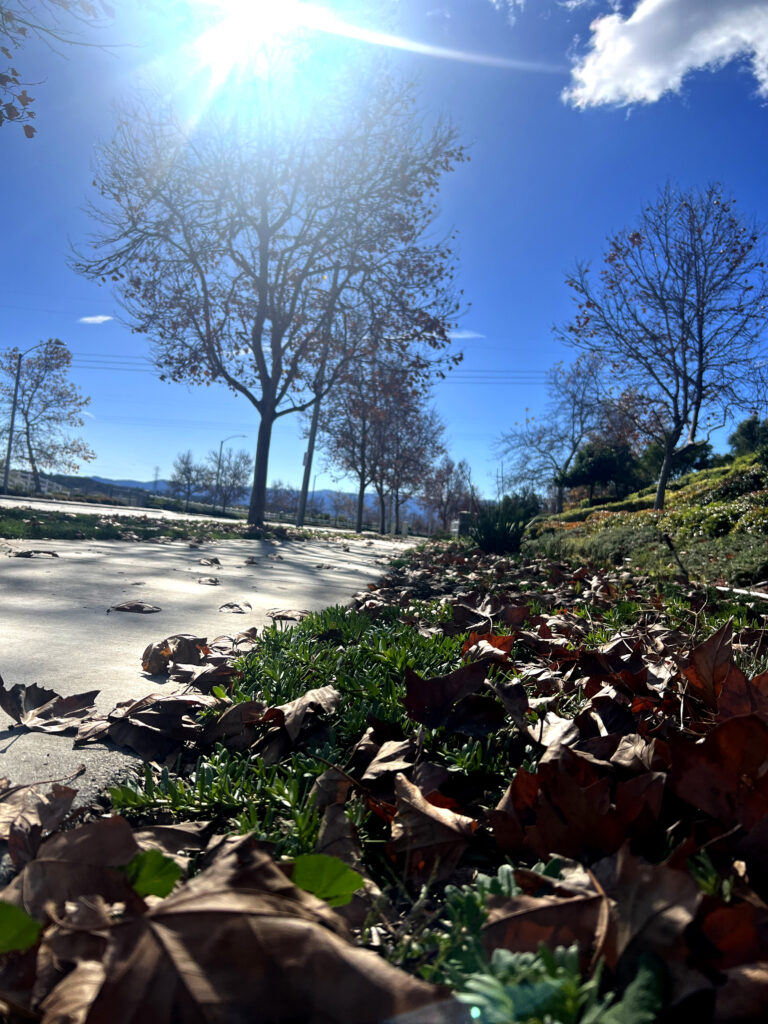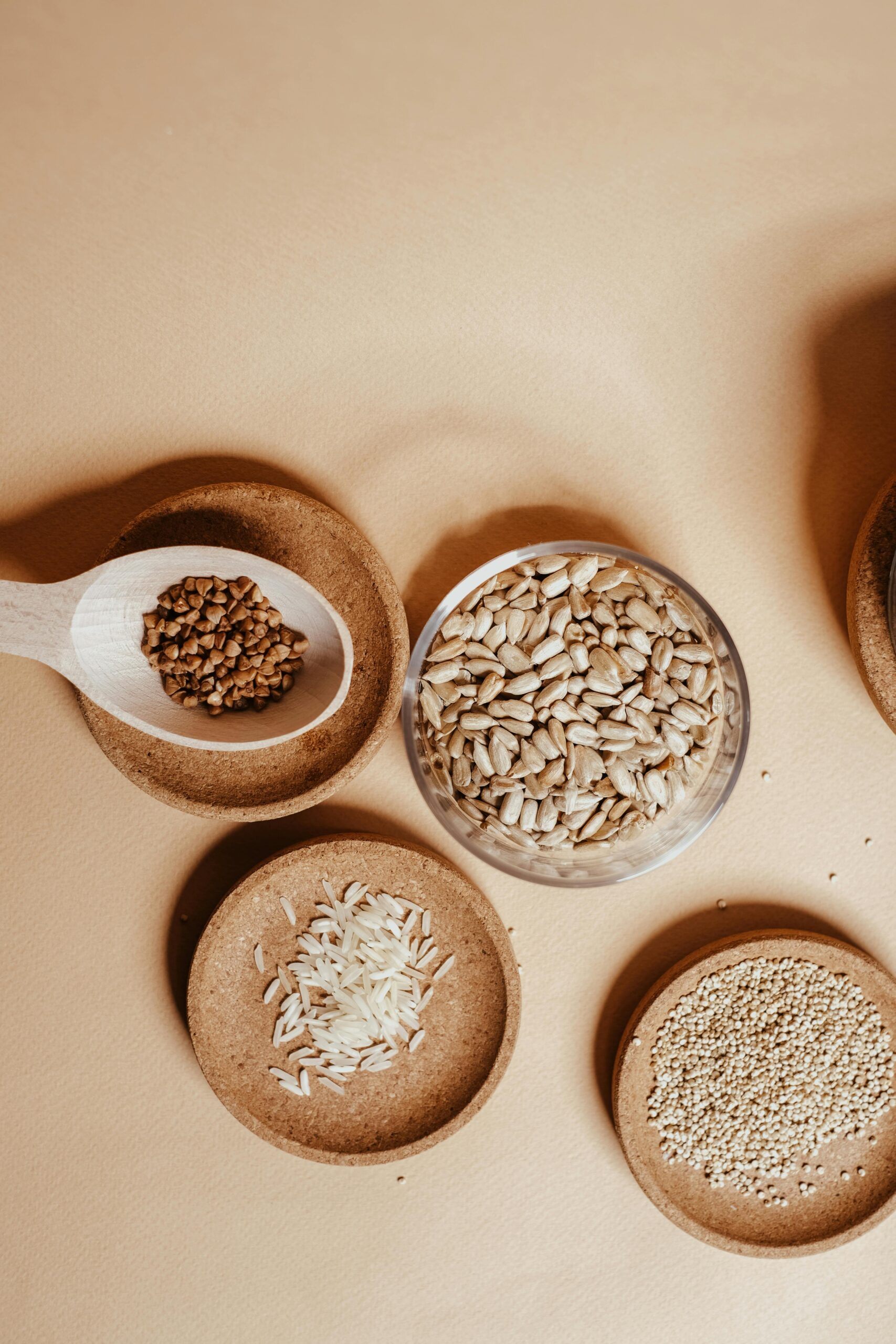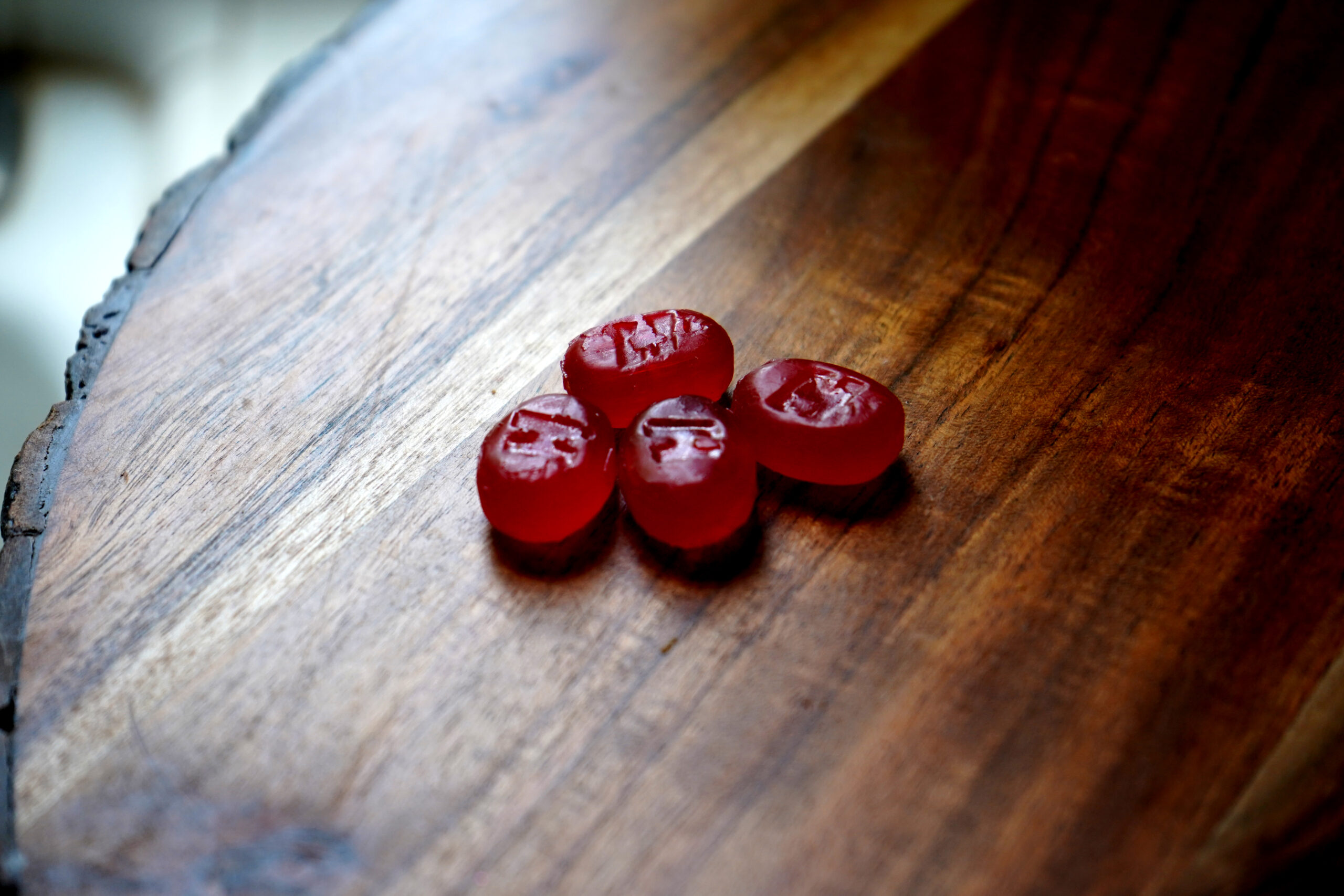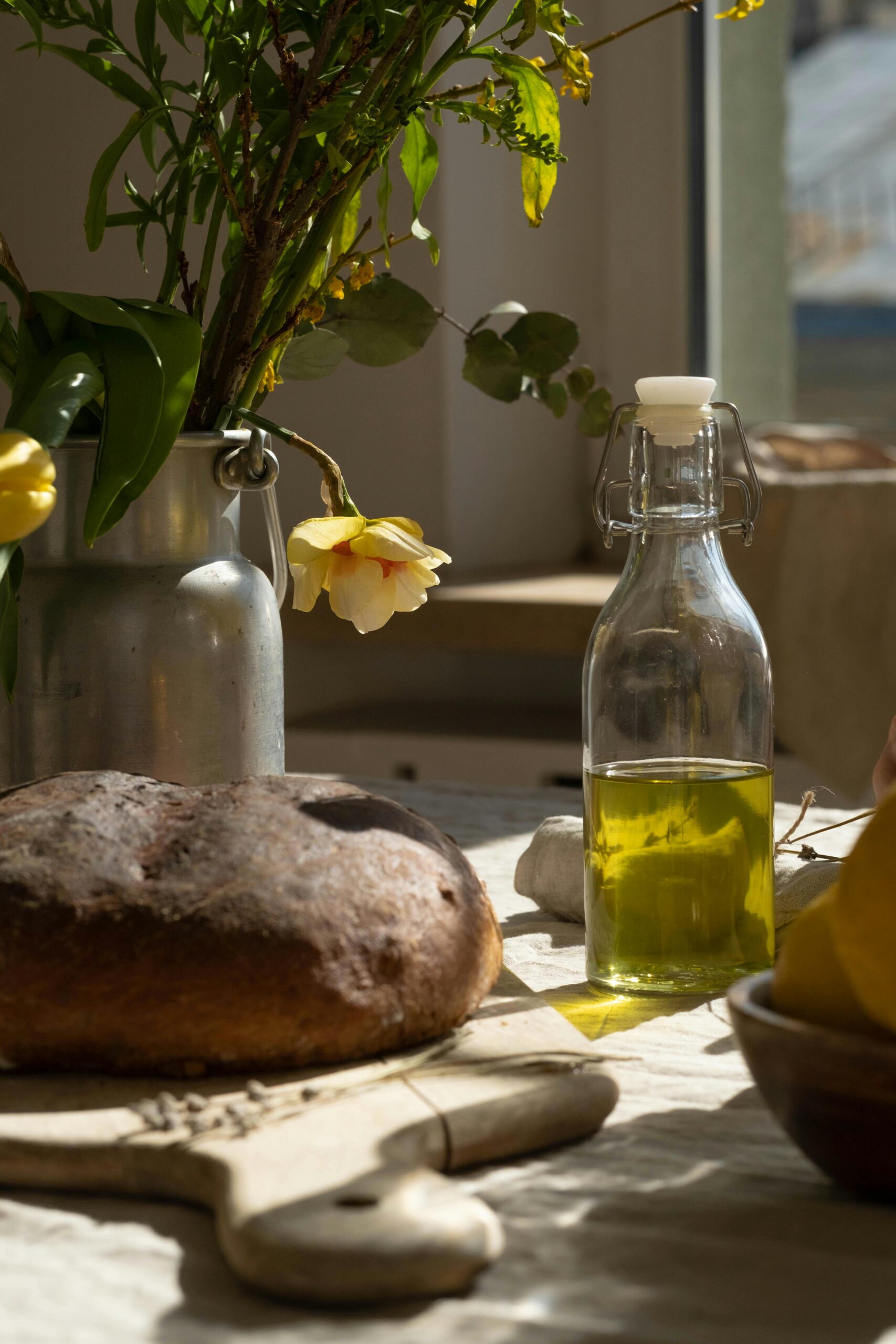10,000 Steps a Day: The Mediterranean Way to Better Health and Happiness
My 40s are hitting me hard. Not in a midlife-crisis kind of way — more like a “why does everything I eat now immediately take up permanent residence on my thighs?” kind of way.
I used to indulge in my favorite simple pleasures — greasy food, bread, pastries — without a second thought. Now I swear I can feel my body calculating the carbs in real time, like a judgmental accountant whispering, “Are you sure about that second slice of focaccia?”
So, I did what any rational, slightly panicked woman in her 40s would do: I bought a Fitbit.
Not an Apple Watch — let’s be clear. I didn’t need my wrist buzzing with more notifications or anyone else having easier access to me. I wanted something old-school. A device that simply told me, “Move your butt.” That’s it. No emails, no texts, no calendar reminders that I agreed to lunch with someone I don’t even like.
Just steps.
Because honestly? I’m busy. Between work, life, and the occasional existential crisis, carving out an hour for a structured workout sometimes feels like trying to find parking in Rome — frustrating and possibly futile. But tracking my steps? That I can do. It makes me feel like I’m doing something useful — sneaking in movement between emails, errands, and espresso breaks.
And let me tell you: once you start counting steps, it’s addictive. Suddenly, you’re taking the long way to the mailbox. You’re pacing in the kitchen while your pasta water boils. You’re doing laps around your living room at 9:45 p.m. because your Fitbit says you’re 427 steps short of your daily goal, and you refuse to go to bed defeated.
I call it Mediterranean cardio.
Because here’s the thing — walking is everything in the Mediterranean lifestyle. And if you’ve been following along, you know we’re obsessed with that way of living: slow, joyful, balanced, and somehow always glowing even when eating carbs.
One of the secrets? They walk. A lot.
Take Sardinia, for example — one of the world’s five Blue Zones, where people regularly live past 100. Sardinians are known for their longevity, and while genetics play a part, lifestyle does most of the heavy lifting. Their villages are built on steep hills, and people spend their lives walking up and down them — not for exercise, but simply to live. They walk to the market, to church, to visit friends, and again after meals. Their days are built around movement — small, consistent, purposeful steps that add up to stronger bodies and longer lives.
Researchers have found that Sardinian men and women walk an average of five miles a day, often on uneven terrain. It keeps their hearts healthy, their muscles strong, and their minds sharp. But it’s not just physical — walking keeps them connected. It’s how they stop to chat with neighbors, check on family, and breathe in the mountain air. Movement isn’t a chore. It’s woven into the rhythm of life.
It’s not about hitting 10,000 steps — it’s about moving with purpose.
That’s what I’ve been trying to channel lately. Less bootcamp intensity, more nonna going to buy tomatoes.
When I first started tracking my steps, I thought, “Okay, 10,000. Easy.” I mean, I move all day, right? Wrong. Apparently, pacing from my desk to the kitchen and back does not equal a power walk along the Amalfi Coast.
My first full day with the Fitbit, I hit 3,200 steps.
Three. Thousand. Two hundred.
It was humbling. I genuinely thought something was wrong with it. So I tested it by doing laps around my house, pretending I was on a seaside promenade. By the time I reached 10,000, my dog thought we’d moved in circles for good.
But here’s the surprising part — I felt amazing. Lighter, happier, and honestly a little smug. Like, “Oh, this must be what living a Mediterranean lifestyle feels like.”
It’s wild how something as simple as walking can shift your entire mindset. The way the afternoon light hits the trees, the smell of a neighbor’s cooking drifting through the air, the friendly “ciao” from people I’d never noticed before — walking slowed me down in the best way.
That’s what I love most about the Mediterranean approach. It’s not just a diet; it’s a lifestyle. It’s about savoring life — food, movement, connection — all in moderation. There’s no guilt, no extremes, just rhythm.
Italians don’t go to the gym to punish themselves for eating tiramisu. They move because it’s part of living. They eat with joy, walk with purpose, and rest when they need to.
So now, instead of forcing myself into punishing HIIT workouts I secretly hate, I walk. I walk with nowhere to go. I walk with no one to see. And I definitely walk after meals, just like they do in Sardinia. Sometimes I even bring a small glass of wine (don’t judge me — it’s called multitasking).
And guess what? My 40s are starting to feel a little less like an ambush and a little more like an upgrade.
Because here’s the truth — your 40s aren’t about trying to be who you were at 25. They’re about owning who you are now. You’re wiser. You know your limits. You care less about impressing anyone and more about feeling good in your own skin.
And for me, that starts with one simple, ancient, beautifully human act: walking.
Maybe that’s the secret all along — not a diet, not a detox, not another app. Just putting one foot in front of the other, like the Sardinians, like the Italians, like generations before us who didn’t need step counters to remind them that movement is life.
So if you need me, I’ll be out there walking.
Probably in circles.
With my Fitbit proudly buzzing — and my thighs still doing their thing — but hey, at least they’re well-traveled.
Oh, and for the record? I’ve officially graduated from the 10,000-step club. These days, I’m averaging between 13,000 and 16,000 steps a day — not because I have to, but because it makes me feel alive. Maybe that’s the real goal — not perfection, not a number, just the joy of movement.
How to Bring a Little Sardinia Into Your Life (and Reach 10,000 Steps While You’re At It)

Okay, so maybe you’re not strolling through cobblestone alleys in Sardinia or hiking up a hill to feed your goats (if you are, please adopt me). But you can bring a slice of that Mediterranean movement into your everyday life — and yes, you can hit your 10,000 steps a day without it feeling like a chore.
Here’s how.
1. Take a Walk After You Eat (Yes, Even Dinner)
In Italy, walking after meals isn’t a fitness trend — it’s tradition. Every evening, as the sun melts into the sea, towns come alive for la passeggiata — the leisurely after-dinner stroll. Families, couples, and grandparents wander through the piazza, gelato in hand, chatting as the day winds down.
They’re not chasing 10,000 steps. They’re chasing connection. But here’s the twist — they get them anyway.
Science backs it up: a 10- to 15-minute walk after eating can help regulate blood sugar, improve digestion, and boost your daily step count effortlessly. Take two or three of those walks a day, and boom — you’re already halfway to your 10,000-step goal without breaking a sweat.
So after dinner, skip the couch for a stroll. No phone, no rush. Just fresh air, slow movement, and a rhythm that reminds you life’s meant to be walked, not rushed. Bonus points if you bring your dog, your partner, or a glass of wine (very Mediterranean multitasking).
2. Redefine What “Exercise” Means (Because 10,000 Steps Don’t Have to Come From a Gym)
Somewhere along the way, “exercise” became something you had to block off on your calendar and dread. But in the Mediterranean, people don’t “work out.” They just move — constantly, casually, joyfully.
Carrying groceries? That’s resistance training. Walking to the market? Steps. Hanging laundry outside while chatting with your neighbor? Still steps.
When you stop viewing exercise as punishment and start seeing it as part of living, the 10,000 steps a day mark suddenly doesn’t feel so far away.
Try this:
- Park a little farther from the store.
- Take stairs instead of elevators.
- Pace while on work calls (trust me, you’ll rack up hundreds of steps without noticing).
- Turn chores into dance breaks.
You’ll hit your step goal before you even realize it — and your day will feel less like “fitting in a workout” and more like moving through life.
3. Slow Down on Purpose (and You’ll Go Farther Than You Think)
Here’s the irony — slowing down often helps you go farther.
We live in a world obsessed with speed. Fast food, fast workouts, fast everything. We wear “busy” like a badge of honor and rush through our days like there’s a finish line we’re all racing toward. But the Mediterranean lifestyle gently reminds us that life isn’t a sprint — it’s a long, beautiful walk.
And when you walk without rushing, something shifts. You naturally stay out longer. You notice more. You breathe deeper. And before you know it, you’ve added another 2,000 steps without even trying.
Italians have a word for this: dolce far niente — the sweetness of doing nothing. Except it’s not really “nothing.” It’s presence. It’s peace. It’s the ability to find joy in the in-between moments.
In Italy, no one power walks with earbuds and a frown. They stroll. They pause. They stop to wave at a neighbor, admire a window display, or pet a stray cat lounging in the sun. Their pace isn’t lazy — it’s intentional. Every step is unhurried, every moment savored.
And here’s the secret: when you stop rushing, you actually go farther. You forget about the clock, and suddenly your 10,000 steps sneak up on you like a surprise gift from the universe.
Try it sometime — leave your phone at home (I know, terrifying). Notice how your shoulders relax. Feel your breath settle into a rhythm. Smell what’s cooking in your neighborhood — maybe someone’s making garlic and tomato sauce, or roasting vegetables, or baking bread.
These tiny sensory details are what make walking feel good, not just productive. The Mediterranean secret isn’t about walking for calorie burn — it’s about walking to reconnect.
You start realizing your walks are no longer workouts; they’re rituals. They clear your mind, open your lungs, and untangle the chaos of the day. They’re the moments when solutions to problems magically appear — or when you finally let go of needing one.
By the time you get home, your mind feels lighter, your mood lifted. The noise in your head has quieted. And then, just to top it off, your Fitbit buzzes — you’re a few hundred steps away from that sweet 10,000-step goal.
Funny how it works: when you stop chasing the number and start enjoying the walk, the number finds you anyway.
That’s the Mediterranean secret — movement as meditation. Steps as stillness. A slower rhythm that somehow takes you exactly where you need to go.
4. Fuel Like the Mediterranean (Because Food and Steps Go Hand-in-Hand)
The Mediterranean diet isn’t a diet — it’s a lifestyle. It fuels those endless walks with balance and flavor: olive oil, whole grains, seafood, veggies, and yes, wine.
Here’s what fuels 10,000 steps beautifully:
🥄 Extra-Virgin Olive Oil — Liquid Gold
Every Mediterranean meal starts (and ends) with olive oil. It’s the quiet hero — anti-inflammatory, heart-healthy, and rich in antioxidants that keep your joints happy as you hit those 10,000 steps.
And beyond the health science, there’s just something sacred about it. The peppery bite of a fresh press, the way it glistens on roasted vegetables, the golden ribbon that ties an entire meal together. It’s not an ingredient — it’s a love language.
Drizzle it on your morning toast, swirl it over a salad, even finish soup with it. The Italians don’t measure olive oil in tablespoons — they measure it in happiness.
🍅 Colorful Produce — Eat the Rainbow, Literally
Tomatoes bursting with sweetness. Deep green spinach. Lemons from the Amalfi Coast so bright they could power a small city.
Mediterranean meals are naturally colorful because nature’s palette is their pantry. These foods aren’t just pretty — they’re loaded with vitamins, antioxidants, and fiber that keep your energy steady for every step of your day.
When your plate looks like a summer market in Puglia, you don’t just eat better — you feel better. That energy? It’s the kind that makes your evening walk turn into 12,000 steps without realizing it.
🌾 Whole Grains — Farro, Barley, and Brown Rice
Carbs get a bad reputation, but in the Mediterranean, they’re not villains — they’re the backbone. Whole grains like farro and barley keep you fuller longer and release energy slowly, so you can cruise through your 10,000 steps without crashing halfway.
Farro, especially, has ancient roots — it was a staple of Roman soldiers. If it fueled them through battles, it can handle your modern-day stair climb and neighborhood stroll.
The trick? Keep it simple. Cook grains in broth, toss them with olive oil, lemon, and herbs, and let them shine. No complicated rules, no guilt — just food that works as hard as you do.
🐟 Protein with Purpose — Fish, Beans, and Lentils
Mediterraneans know how to keep things balanced. Instead of heavy meats, they go for fish packed with omega-3s, or plant-based options like beans and lentils that give you steady, clean energy.
Think tuna tossed with cannellini beans and olive oil. Grilled sardines with lemon and herbs. A warm bowl of lentil soup drizzled with EVOO (yes, again). These meals don’t just taste good — they make you feel capable, strong, and ready to move.
When you fuel your body this way, 10,000 steps feels effortless — not forced. It’s your body saying “thank you” with every stride.
💛 Joy — Because Stress Is Worse Than Any Carb
You can eat perfectly, exercise daily, and still miss the point if you’re doing it without joy. The Mediterranean diet works not because of a magic food group, but because it’s woven with pleasure.
Meals aren’t rushed or eaten hunched over a laptop. They’re shared, savored, and seasoned with laughter. Even dessert is guilt-free — enjoyed, not justified.
And here’s the real magic: joy lowers stress, which lowers inflammation, which keeps your heart and mind healthy enough to keep moving — day after day, step after step.
So don’t count calories; count moments. Laugh over dinner. Pour the wine. Savor the bread. Then take that evening stroll, hit your 10,000 steps, and feel the kind of full that no protein bar could ever give you.
Because food isn’t just fuel for your body — it’s momentum for your soul.
When you eat this way, walking feels easier. You have energy that lasts, not the sugar highs and crashes of processed foods. Italians don’t count macros — they count memories.
And the next time you walk after a meal? Consider it your thank you to your body — a slow, satisfying way to reach your 10,000 steps while living la dolce vita.
5. Celebrate Consistency, Not Perfection (Because Even Sardinians Miss a Day)
Here’s a secret: 10,000 steps a day isn’t a magic number — it’s a motivator.
The idea actually started in Japan in the 1960s when a company selling one of the first pedometers used the slogan manpo-kei, which translates to “10,000 steps meter.” It sounded catchy, looked great on marketing material, and — without realizing it — became the global standard for movement.
But here’s the twist: the science came after. Later research showed that people who walked even 7,000 to 9,000 steps a day had significantly better heart health, lower risk of disease, and improved mood. In other words, you don’t have to hit exactly 10,000 — you just have to keep moving.
So, it’s not about perfection; it’s about consistency.
Some days, I’ll walk 16,000 steps and feel like a goddess of stamina — legs strong, energy high, Fitbit practically cheering me on. Other days, life happens. Work piles up, plans change, and suddenly I’m at 4,983 steps thinking, “Does pacing while brushing my teeth count?” (It does. Everything counts.)
That’s the thing about walking — it teaches patience. You can’t rush it. You can’t fast-forward it. You just have to keep putting one foot in front of the other, even when you don’t feel like it.
Each step matters — literally. Those quick trips to the kitchen, those short walks to the mailbox, even that loop around your living room at 9:45 p.m. (I see you). They all add up.
And when you start thinking like that, movement stops being something you schedule and becomes something you live.
Here’s another secret I’ve learned: you don’t even need to leave your house to sneak in a few hundred steps — or to wake up your body after sitting all day.
If I’ve been writing too long or my Fitbit buzzes like, “Hey, remember your legs?” I’ll do a few of these:
- Leg lifts while making coffee. Balance on one leg, lift the other a few inches, switch sides. You’ll feel it in your hips and glutes — and somehow, it makes the coffee taste better.
- March-in-place breaks. Set a timer for every hour. Two minutes of marching adds up to about 250 steps — do it four times a day and you’re already 1,000 steps closer.
- Sink-side squats. Waiting for the water to warm up? Ten slow squats. Bonus: your legs get toned, and you feel oddly virtuous about doing chores.
- Toe raises while brushing your teeth. Two minutes of up-and-down motion works your calves and your balance. Double task, double win.
- Stretch breaks with intention. Reach for the sky, roll your shoulders, rotate your ankles. Movement doesn’t have to mean sweat — sometimes it just means waking up your body again.
It’s choosing progress over perfection. It’s realizing that life will always get busy, but there’s always time for a few steps — a walk around the block, a stroll after dinner, or a leg lift or two between emails.
Celebrate every walk. Every errand. Every stretch. Every bit of movement that keeps you grounded and glowing. Because over time, those small, imperfect, beautifully human efforts add up — to a stronger heart, a calmer mind, and a life filled with steps, laughter, and a little less stress.
And one day, when your Fitbit buzzes that final vibration for 10,000 steps, you’ll smile — not because of the number, but because you got there by living, not chasing.
The Mediterranean Mindset
Here’s the thing: the 10,000-step goal isn’t really about the number — it’s about the lifestyle behind it.
Move because it makes you feel alive.
Eat because it nourishes you.
Walk because it clears your mind.
You don’t need to move to Europe to live this way — you just need to take that first step. So tonight, go for your own passeggiata. Walk off dinner. Breathe. Smile at someone. And remember — you’re not just chasing 10,000 steps. You’re walking toward a happier, healthier version of yourself.






